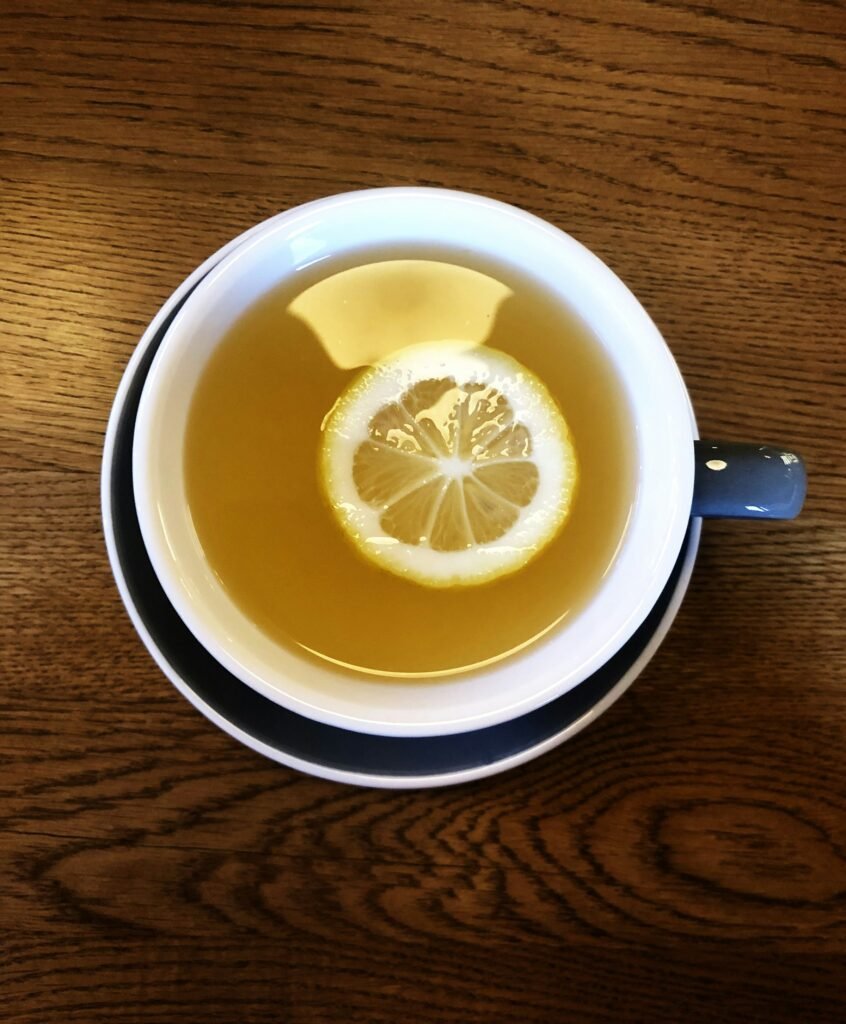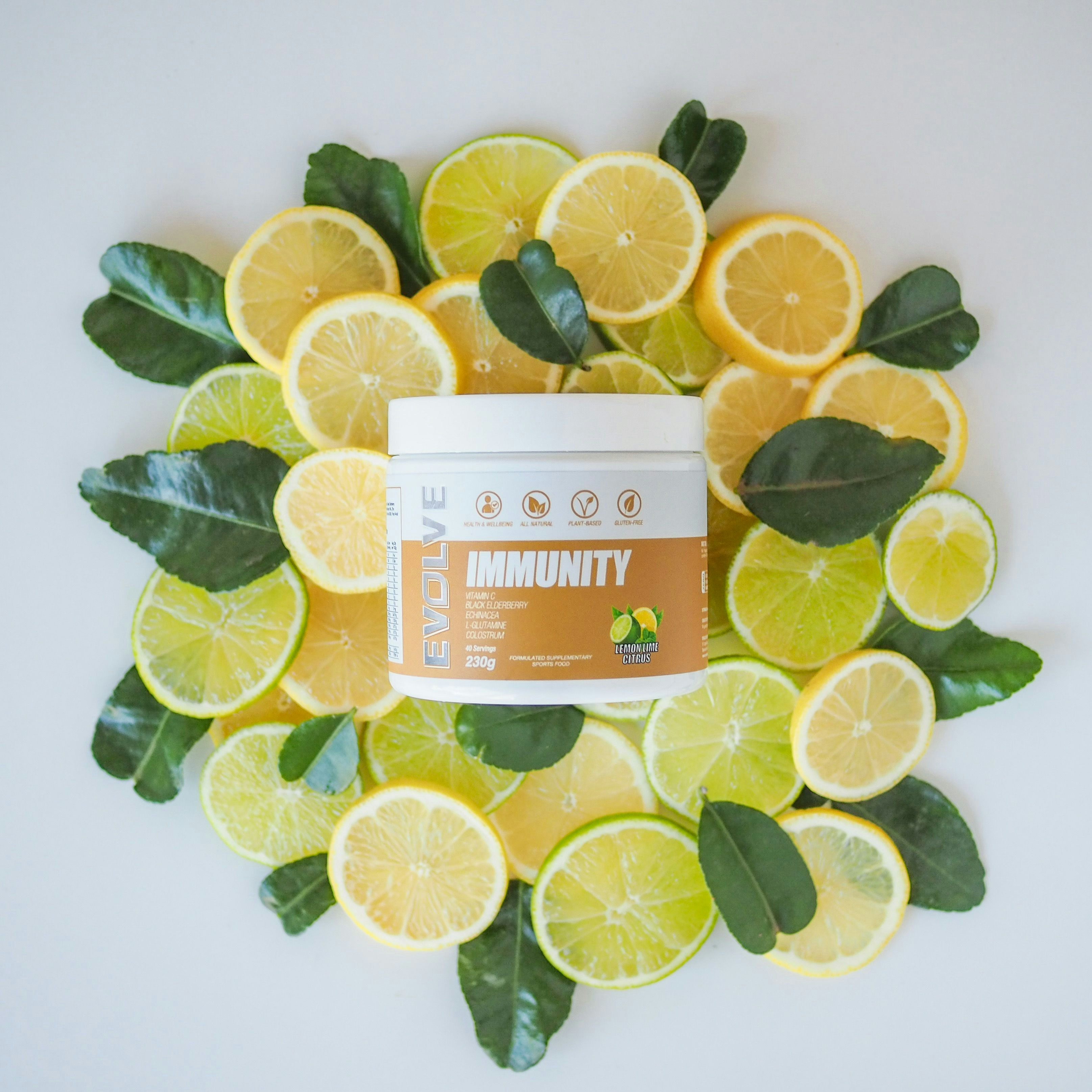
Introduction to Lemon Balm Tea
Lemon balm tea is a herbal infusion made from the leaves of the Melissa officinalis plant, a member of the mint family, known for its light lemon scent and taste. Historically, this herb has been used for centuries for its potential calming effects, first documented in ancient Greece and later embraced in medieval Europe for its ability to uplift mood and alleviate stress. Folk medicine frequently recommended lemon balm as a remedy for anxiety and sleep disturbances, reflecting its long-standing role in promoting emotional well-being.
In recent years, there has been a noticeable resurgence of interest in natural remedies for stress relief, spurred by a growing awareness of the adverse effects that chronic stress can have on overall health. Individuals increasingly seek alternatives to traditional pharmaceuticals, which can come with a range of side effects. This shift has led to the exploration of various herbal teas, with lemon balm tea being at the forefront due to its well-documented soothing properties.
Research suggests that the compounds found in lemon balm, such as rosmarinic acid and flavonoids, may contribute to its positive effects on the nervous system. These constituents are believed to help mitigate anxiety and induce a sense of calm, making lemon balm tea a popular choice for those grappling with daily stressors. As more people prioritize self-care practices, it is no surprise that lemon balm tea has gained traction as an accessible and palatable option for enhancing relaxation and supporting mental clarity.
The intersection of traditional herbal knowledge and contemporary wellness trends highlights lemon balm tea’s relevance in today’s context. As we delve deeper into its benefits and potential applications, it becomes increasingly evident that this herbal infusion serves not only as a comforting beverage but also as a holistic ally in fostering relaxation and promoting a balanced lifestyle.
The Science behind Lemon Balm Tea
Lemon balm tea, prepared from the leaves of the Melissa officinalis plant, has garnered attention in the scientific community due to its potential effects on stress relief and the overall support of the nervous system. Various studies have explored the bioactive compounds present in lemon balm, particularly rosmarinic acid, which is considered one of its key constituents. Research has suggested that rosmarinic acid exhibits anti-anxiety and calming properties that may contribute significantly to relaxation and stress alleviation.
In a randomized controlled trial, participants who consumed lemon balm extract reported a decrease in anxiety levels and improvements in mood. The study highlighted its ability to enhance cognitive function and memory while reducing stress, implying a dual benefit of promoting mental clarity alongside tranquility. Other research further supports these findings, noting that lemon balm’s calming effects may stem from its interaction with gamma-aminobutyric acid (GABA) receptors in the brain. By positively influencing GABAergic activity, lemon balm can help lower feelings of anxiety and foster a sense of calm.
However, it is essential to acknowledge that while these compelling findings present promising evidence, not all studies yield consistent results. Some investigations indicate that the efficacy of lemon balm tea can vary significantly based on dosage, preparation methods, and individual differences. Additionally, certain research efforts have yielded inconclusive data, warranting further exploration into its therapeutic benefits. As such, while lemon balm tea is regarded as a natural remedy for stress relief and nervous system support, it is important to approach it with realistic expectations and consider it as part of a broader holistic lifestyle.
Benefits of Lemon Balm Tea for Mood and Sleep Quality
Lemon balm tea, brewed from the leaves of the Melissa officinalis plant, has been gaining recognition for its potential benefits in enhancing mood and improving sleep quality. The calming effects of lemon balm are often attributed to its ability to promote relaxation, which can be particularly beneficial for those experiencing stress or anxiety. Several studies have suggested that this herbal tea may have anxiolytic properties, helping to reduce feelings of stress and creating a more tranquil mental state.
Personal testimonials further support these claims, with many individuals reporting favorable experiences after incorporating lemon balm tea into their daily routines. People have shared anecdotes about how sipping on a warm cup before bedtime helped them unwind, leading to deeper and more restorative sleep. This feedback highlights the tea’s potential as a natural remedy for those struggling with sleep disturbances linked to stress or anxiety. As lemon balm tea is generally well-tolerated and safe for most individuals, it presents an accessible option for enhancing well-being.

Moreover, lemon balm tea can be easily integrated into mindfulness practices. For instance, one might incorporate it into a pre-sleep ritual, sipping on the tea while engaging in calming activities such as reading or meditation. The act of preparing and enjoying a cup of lemon balm tea itself can be a mindful experience, helping to center one’s thoughts and alleviate daily stressors. By making it a habit, individuals may not only enhance their mood during the day but also improve their overall sleep quality at night, leading to a more balanced emotional state.
Incorporating Lemon Balm Tea into Your Daily Routine
Lemon balm tea serves as an effective tool for managing stress and supporting the nervous system, and incorporating it into your daily routine can amplify its benefits. To begin with, preparing lemon balm tea is a straightforward process. You can use either fresh or dried lemon balm leaves. For a simple infusion, steep one teaspoon of dried leaves or a handful of fresh leaves in hot water for approximately 5 to 10 minutes. The longer you steep, the more pronounced the flavors and compounds will be, enhancing its calming qualities.
Timing is also crucial when consuming lemon balm tea to maximize its stress-relieving properties. It is advisable to drink this herbal tea during moments of increased stress or anxiety. Consuming a cup mid-morning can provide a soothing pause, helping to reset your focus for the day ahead. Additionally, sipping on lemon balm tea in the evening, especially before bedtime, can aid in relaxation and preparation for sleep, allowing your body to unwind and your mind to settle.
Creating a calming routine that includes lemon balm tea can further enhance your overall experience. Consider setting aside specific times in your day to dedicate to this ritual. Establishing a serene space, perhaps with soft lighting and comfortable seating, encourages relaxation. You might also incorporate mindfulness techniques such as deep breathing or meditation while enjoying your tea, further augmenting the stress-relief effects of the lemon balm. Lastly, feel free to combine lemon balm tea with other calming herbs, such as chamomile or lavender, for a delightful blend that elevates the therapeutic experience.
Exploring Other Natural Ways to Strengthen Your Immune System Quickly
Strengthening the immune system is essential for maintaining overall health, particularly during times when illness is prevalent. While lemon balm tea offers numerous benefits for stress relief and nervous system support, there are additional natural methods that can enhance immune health. A balanced approach, incorporating various natural supplements and lifestyle changes, can lead to a more resilient immune response.
One of the most effective natural supplements for boosting immunity is elderberry. Rich in antioxidants, elderberry has been traditionally used to combat flu and cold symptoms. Recent studies indicate that it may reduce the duration and severity of these illnesses, making it a popular choice alongside lemon balm tea. Another well-known supplement is echinacea, which is believed to enhance the immune system’s response to infections. This herb, often consumed in the form of tea or capsules, can work synergistically with lemon balm, creating a holistic approach to wellness.
In addition to herbal supplements, certain lifestyle changes can significantly influence immune function. Regular physical activity is crucial; even moderate exercise can enhance circulation, helping immune cells travel throughout the body more efficiently. Incorporating a balanced diet rich in vitamins and minerals, particularly vitamin C and zinc, can provide the necessary nutrients that support immune health. Foods like citrus fruits, nuts, and leafy greens play a vital role in this aspect.
Adequate sleep is another critical factor. The body repairs and regenerates during sleep, and insufficient rest can compromise immune functionality. Therefore, prioritizing quality sleep can be a powerful ally in strengthening the immune system. Additionally, practicing stress-reduction techniques such as mindfulness or meditation can enhance immune resilience by reducing cortisol levels, further complementing the calming effects of lemon balm tea.
The Role of Natural Supplements in Stress Management
Natural supplements have increasingly garnered attention as viable options for managing stress and promoting overall mental health. These supplements, which can include various herbs, vitamins, and minerals, offer an alternative or complementary approach to conventional stress-relief strategies. Among the many choices available, those that specifically support the nervous system are particularly significant, with lemon balm tea being a noteworthy example. Regular consumption of lemon balm tea, known for its calming properties, can enhance the stress-relieving benefits of other natural supplements.
There are numerous types of natural supplements that contribute to stress management. Adaptogens, such as ashwagandha and rhodiola, have gained popularity for their ability to help the body adapt to stress by regulating cortisol levels. Similarly, omega-3 fatty acids and magnesium have been highlighted for their roles in maintaining a healthy nervous system and mitigating anxiety symptoms. These nutrients can be sourced from both foods and supplements, allowing individuals to tailor their intake according to personal preferences and dietary restrictions.
Furthermore, botanical extracts like chamomile and valerian root also provide calming effects that align well with the use of lemon balm tea. A synergistic approach that encompasses a variety of these natural supplements can lead to improved resilience against everyday stressors. It is essential, however, to consider individual differences in response to these substances and to consult with a healthcare professional before introducing new supplements into one’s routine.
Incorporating a diverse array of natural supplements as part of a holistic stress management plan can greatly enhance emotional well-being and support the nervous system. As lifestyles become increasingly hectic, the importance of understanding the role of these supplements grows, paving the way for informed decisions that foster mental clarity and tranquility.

Affordable and Effective Natural Supplement Options
In today’s fast-paced world, managing stress and supporting the nervous system is more important than ever. Fortunately, there are several affordable natural supplement options that individuals can easily integrate into their daily routines. One of the most accessible and cost-effective choices is lemon balm tea, known for its calming properties and ability to promote relaxation.
Lemon balm, a member of the mint family, has been used for centuries to alleviate stress and anxiety. This herbal tea not only offers a soothing flavor but also contains compounds that may help reduce stress levels and enhance mood. What makes lemon balm tea particularly appealing is its affordability; it can be purchased in bulk or as pre-packaged tea bags, making it an economical choice for everyone.
Aside from lemon balm tea, there are other natural supplements that support emotional well-being and overall health. For example, chamomile tea is widely celebrated for its soothing effects and can be consumed before bedtime to promote restful sleep. Similarly, valerian root is another cost-effective option that may assist with anxiety and insomnia. Available in tincture or capsule forms, valerian can be easily added to a nightly routine.
Furthermore, adapting dietary choices can also enhance the overall effectiveness of these supplements. Incorporating foods rich in omega-3 fatty acids, such as flaxseeds and walnuts, may support brain health and reduce inflammation, further bolstering one’s ability to manage stress. Such dietary adjustments, paired with affordable herbal options, create a holistic approach to nervous system support.
Overall, the benefits of these natural supplements extend beyond mere cost. They offer an effective means to nurture emotional health and wellness in a budget-friendly manner, making them accessible to a wider audience seeking relief from stress-related issues.
Affiliate Marketing Opportunities in Natural Wellness
The growing interest in natural wellness products presents a significant opportunity for affiliates aiming to monetize their efforts in this niche. As consumers increasingly seek alternative solutions for managing stress and supporting their nervous systems, products like lemon balm tea are becoming more prevalent. Affiliates can capitalize on this trend by promoting high-quality natural supplements that appeal to health-conscious audiences.
To effectively promote lemon balm tea and other wellness products, affiliates should consider creating comprehensive content that highlights the benefits of these items. Informative blog posts, engaging social media updates, and persuasive email marketing campaigns can all serve to educate potential customers on how natural remedies improve overall well-being. By weaving in personal experiences or testimonials, affiliates can enhance credibility and foster trust with their audience.
Another strategy is to partner with reputable brands that produce lemon balm tea and other natural supplements. Affiliates should look for programs that offer competitive commission rates and provide marketing resources, such as product images, descriptions, and social media sharing tools. By aligning with well-known brands, affiliates can leverage the brand’s reputation and audience loyalty to increase conversion rates.
In addition to traditional affiliate programs, bloggers and content creators might explore the potential of subscription models or bundled product offerings. For example, promoting a subscription service that delivers lemon balm tea regularly to customers could provide recurring revenue. This model not only fosters customer retention but also offers affiliates the chance to earn consistent income over time.
Overall, the natural wellness sector, particularly products like lemon balm tea, offers lucrative prospects for affiliates. By utilizing effective marketing strategies and focusing on building relationships with trusted brands, affiliates can successfully navigate this growing market while helping their audiences discover the benefits of natural health solutions.
Conclusion: Embracing Lemon Balm Tea for a Calmer Mind
Lemon balm tea has emerged as a gentle yet effective natural remedy for managing stress and supporting the nervous system. With its calming properties, lemon balm is not only known for enhancing relaxation but also for its ability to improve mood and cognitive function. The presence of compounds like rosmarinic acid contributes to its neuroprotective qualities, making this herbal infusion a holistic approach to mental wellness.
The incorporation of lemon balm tea into daily routines can serve as a powerful tool for those seeking to cultivate a calmer mindset. Regular consumption could potentially lead to a reduction in anxiety levels and an improvement in overall emotional stability. As individuals navigate the challenges of daily life, opting for lemon balm tea may act as a soothing ritual, providing both comfort and resilience against stressors.
Moreover, the benefits of lemon balm tea extend beyond immediate stress relief; it plays a role in nurturing overall mental health. As understanding around natural supplements expands, lemon balm’s potential as part of a broader wellness strategy is gaining recognition. Combining lemon balm tea with other lifestyle adjustments or supplements, such as mindfulness practices or adaptogenic herbs, may enhance its efficacy in promoting relaxation and cognitive clarity.
It is essential to acknowledge that while lemon balm tea offers numerous benefits, addressing stress naturally remains crucial in today’s fast-paced world. By choosing lemon balm tea and other holistic approaches, individuals can foster a more balanced and tranquil existence. As you explore the world of herbal teas, consider integrating lemon balm into your self-care regimen, allowing its calming essence to contribute to your mental and emotional well-being.

